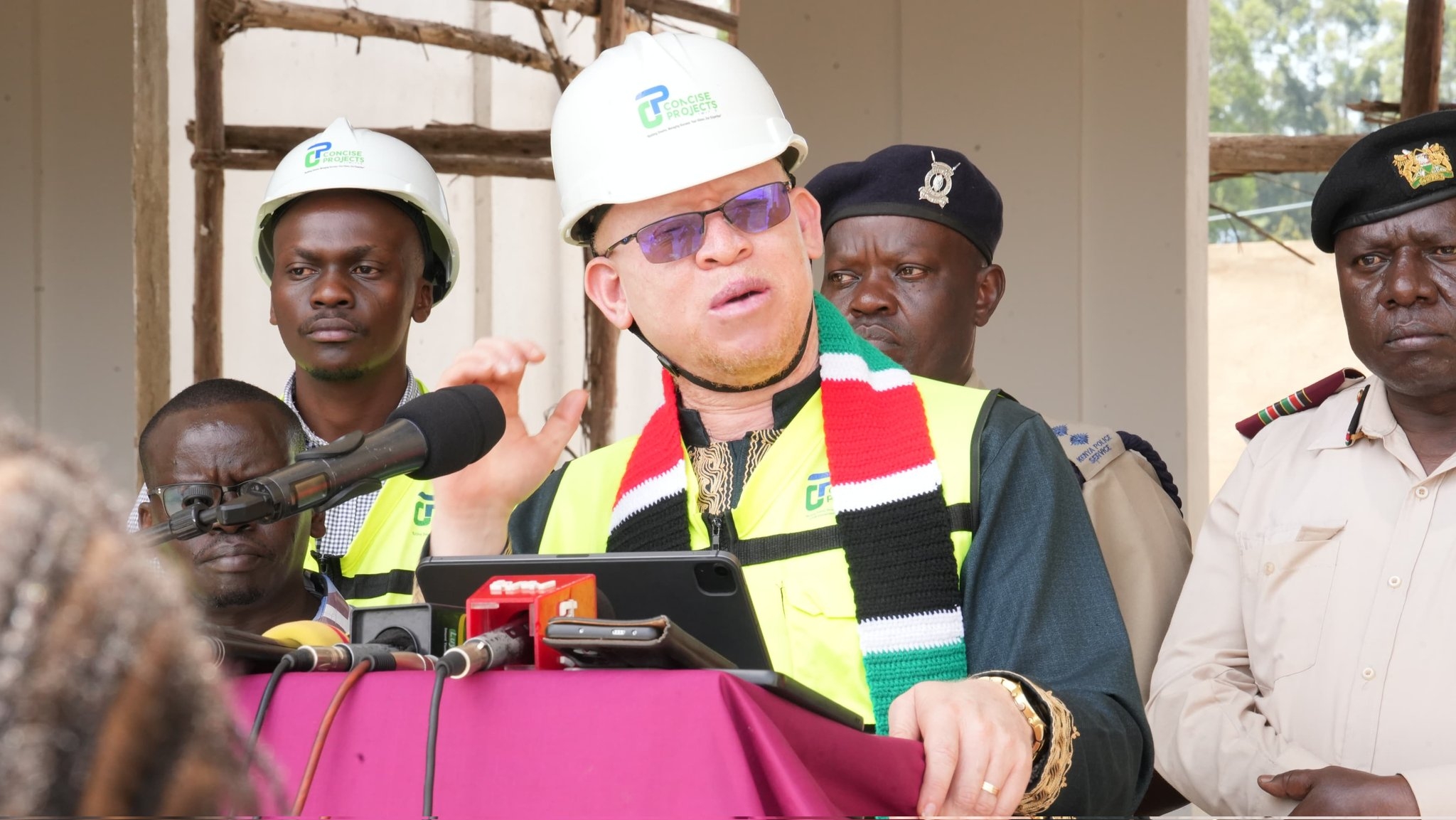Hundreds of girls aged between 12 and 16 have fled to a rescue centre in Tiaty subcounty, Baringo county, for fear of being subjected to female genital mutilation and early marriage.
As girls in other parts of the country look forward to the August holidays, girls in the region have nothing to smile about, with most of them vowing not to go home for fear of what awaits.
The Star team toured Cana Girls Rescue Home in Nginyang’, which has been the refuge for the girls fleeing the archaic cultural practices. The jovial girls welcomed us warmly but, as we were to learn later, behind their innocence lie chilling experiences they have undergone before seeking refuge at the home.
JC, aged 12 and a Grade 6 pupil at Nginyang’ Boarding Primary School, fled her home in Churo two weeks ago after she got wind that her parents were planning to circumcise her and then marry her off.
“I walked in bushes day and night for more than 30km until I got to the main road where some Good Samaritans brought me to the rescue centre. It is safe here, I will not go back home,” she said.
Another girl, MC, aged 16, from Riong’o fled her home last month after her parents colluded with her aunt to circumcise her.
“I managed to flee home after my brother assisted me and I walked for more than 20km. I will not go back home until I’m assured of my safety. I want to study hard in school to achieve my dreams of becoming a journalist,” she said.
Rev Christopher Chochoi of the Anglican Church of Kenya, who is in charge of Cana Girls Rescue Home, said parents in the area view their daughters as an easy source of wealth in form of dowry. Parents get more than 12 cows when they give away their underage daughter for marriage.
“We’ve been facing a lot of hostility from parents who come to the school demanding to take their daughters back home to undergo circumcision, forcing us to seek the help of police and members of the national government administration,” Rev Chochoi said.
The cleric cited an incident last year where a girl who had been forced marry an 80-year-old man took poison and died.
He said FGM contributes to high illiteracy rates among women in the area, with more than 90 per cent of them not having gone to school. Girls are usually married off after undergoing the ritual.
The rescue centre is grappling with a high number of girls seeking accommodation and facilities have been stretched to the limit.
FGM is rampant in December and August holidays and the practice is deep-rooted in areas such as Kositei, Kollowa, Riong’o, Churo, Tangulbei, Paka Hills and Natan.
Apart from being a refuge to girls fleeing FGM and forced marriage, Cana Rescue Home established in 2005 with the help of donors and well-wishers also caters for orphans and vulnerable children. Currently, the home has a population of over 200 girls.
Nginyang’ Boarding Primary School is one of the worst affected during closing day as many girls refuse to go back home to escape the forced cut. The management is forced to accommodate them in school but the girls eventually end up at Cana Girls Rescue Home.
Head teacher Francis Merinyang’ said during the August holidays they accommodate the girls for fear that they will drop out of school if they go home.
“We are usually forced to give some of the girls houses of teachers who have gone home for holidays, where they cook for themselves during the holidays,” Merinyang’ told the Star.
Baringo Governor Benjamin Cheboi acknowledged that FGM was still prevalent in Tiaty subcounty but said his government has put in place measures to stamp out the archaic practice, including opening up the area by setting up more learning institutions.
“Plans are also underway for the county in conjunction with the Ministry of Education and other partners like Red Cross for boarding schools to be set up where the girls can be contained in schools to curb their dropping out during the holidays,” Cheboi said.
The governor said sensitisation forums will be rolled out soon in the area for parents to be informed of the dangers of subjecting their daughters to harmful cultural practices.
A recent survey carried out last year by Women Rights Institute for Peace, a non-governmental organisation based in the North Rift, found that more than 300 girls underwent FGM in the North Rift region during the last December holidays. Tiaty led with more than 100 girls facing the knife or razor blade.
“A worrying trend has also emerged in the area where cases of married women being forced to undergo the practice against their wishes are on the rise,” said WRIP executive director Mariam Suleiman.
This trend has also been reported in parts of Elgeyo-Marakwet county, where married women are threatened with divorce by their husbands if they don’t accede to the demands of the elderly relatives in the community to undergo the rite.
“In some communities, young men are intimidated and threatened by elders and sometimes parents who insist on FGM for their daughters-in-law before distributing inheritance like land to their sons,” Suleiman said.
In some areas like Tiaty, she said, the community has changed the FGM period from December to August to avoid the public, government and media focus that comes at the end of the year.
The situation has been aggravated by some government officials including chiefs, their assistants and other government officials who are ignorant of the existing legal instruments to address the matter.
“Cases of some of the government officials shielding parents and relatives who subject the girls to the practice are not new. However, some of them have been active in the fight against the practice by liaising with the police to have parents who force their children undergo the cultural rite be brought to book,” says part of the report titled ‘Protection of girls Running away from FGM in the North Rift Region’.
















